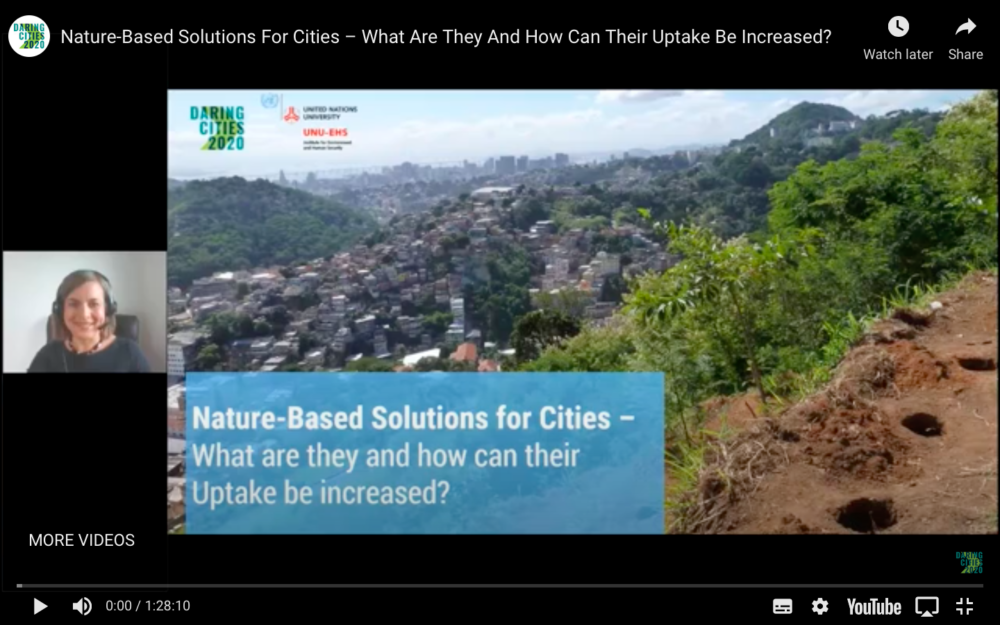
In order to access the video, you must create an account on Daringcities.org or log-in.
Many cities are looking for solutions to protect themselves from the impacts of disasters and climate change. Seawalls are built to protect coastlines from erosion, dikes are constructed to control floods, and air conditioning added to buildings to keep up with rising temperatures. However, many of these solutions are expensive, and they are also not always sustainable or built for growing impacts from disaster events. Many times there are nature-based alternative solutions that cities can turn to in order to adapt to climate change and reduce risks from natural hazards. Trees can help to cool hot streets, grasslands can absorb water, and mangroves can prevent coastal erosion and provide income sources to coastal communities. Oftentimes these nature-based solutions come with additional benefits, for example when plants also help to improve air quality.
However, despite growing scientific evidence on their potential, the adoption of these nature-based solutions is still not widespread. This is particularly the case in cities. The session explores barriers but also promising ways forward, including best practices from frontrunner cities in different ecosystems, research findings and capacity building activities. The session explores how the perception and use of urban green areas changed in the context of COVID-19 and what opportunities this change present for the acceleration of nature-based solution uptake.
By bringing together panelists and participants from research, policy and practice the aim is to obtain a better understanding of how cities can best be supported in adopting nature-based solutions. Questions addressed are, for example:
- What information do cities need from researchers?
- In which format can it be presented?
- What educational activities could lead to greater uptake?
- Where are the barriers?
Facilitator
- Simone Sandholz, Associate Academic Officer, UNU-EHS, Bonn, Germany
Panelists
- Zita Sebesvari, Head, EVES Section, UNU-EHS, Bonn, Germany
- Nathalie Doswald, EbA and Eco-DRR Expert, United Nations Environment Programme
- Annisa Triyanti, Postdoctoral Researcher and Global Youth Advocate, Copernicus Institute of Sustainable Development, University of Utrecht, Netherlands
- Hisham Elkadi, Professor, Dean of Architecture and the Built Environment, University of Salford, Manchester, United Kingdom
- Lunelle Serobatse, Director of Strategic Coordination, Environment and Infrastructure Services Department, City of Johannesburg
